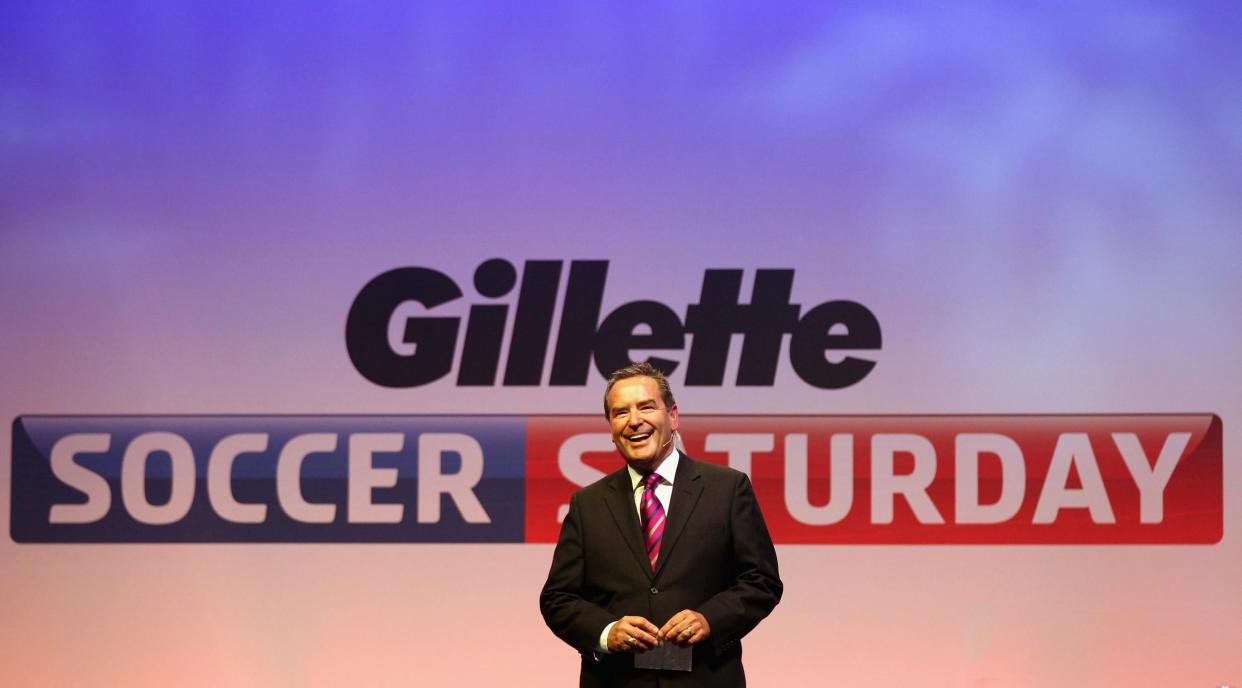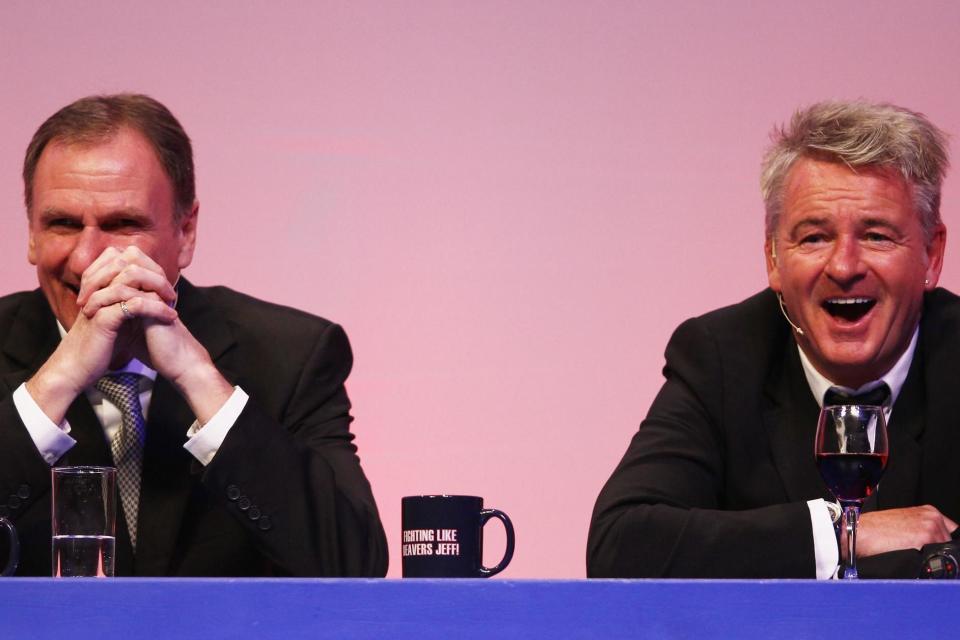Jeff Stelling admits doubts over return of Soccer Saturday despite imminent Premier League restart

March 7 was the last Saturday of normality in the world of English football. Liverpool won, Norwich didn’t, and, after a particularly mundane set of seven Premier League fixtures, Jeff Stelling said we’d do it all again, same time, same place, next week.
“‘Goodnight, see you next week at midday’,” Stelling recalls, the last words he spoke on what would turn out to be the final episode of Sky Sports’ Soccer Saturday before the coronavirus pandemic took hold. “I’m still waiting!”
The 12 weeks since have been the quietest of the 65-year-old’s career, some of his time spent working on a new book and the rest fulfilling the self-crafted role of “dog-walker/peace-keeper”, with two sons back from university and all three of his children once more living under the same roof.
Save for some of ITV’s Euro ‘96 re-run, he has not indulged in much of the feast of footballing nostalgia that has filled blank screens and schedules - “when you know the outcome it’s not quite so appealing” – so the news of a June 17 launch day for Project Restart represents a welcome morale boost, albeit “not if you’re a Norwich fan”.

But while football is on its way back, the use of standalone kick-off times in the Premier League means Soccer Saturday is unlikely to be instantly revived alongside it. “It’s totally up in the air at the moment,” Stelling says. “We can’t have the programme based on ten games spread across the weekend, it’s just not how it works.
“We’re all chomping at the bit to get back but we certainly need the Championship at the very least to resume and then hopefully League One, [next season] the Scottish Premiership, and gradually edge our way back to normality.”
A further novelty of the Unprecedented Circumstances in which football finds itself will see more than a third of the remaining 92 top-flight games shown on free-to-air platforms, including four on the BBC, the network’s first ever live Premier League action.
Though the most popular domestic league on the planet hardly needs to sell itself in the way that, say, cricket did when Sky made last year’s World Cup final epic available to the masses, Stelling says it is “the right thing to do, no question.”
More troubling is the fate of the 3pm blackout, with fears that its temporary relaxation could end up paving the way for a permanent abolition.
“I hope not,” Stelling says. “If a big game starts on a Saturday afternoon [on TV] that’s going to detract from the number of people who go to see live football at lower levels. The difference a few hundred people on or off the gate can make is enormous. Even if 500 people decide to stay at home, that’s a lot of income.”
It’s apt that at this point the conversation is interrupted by a phone call from one of the directors at Hartlepool United, where Stelling is a lifelong fan and, since 2015, president. Like all lower and non-league outfits, Hartlepool have been hit hard by the shutdown, though unlike the EFL, the National League’s swift decision to cancel the remainder of its season at least reduced the immediate burden, allowing the club to be “effectively mothballed”.
“We had four home games left, each worth £15-20,000, so we’ve lost £60-80,000, which is a lot for a club like ours,” Stelling explains. “But our players have been furloughed, we haven’t had to pay travel expenses, overnight stays, and so on.”
The future, however, remains far from promising, with just eight players currently under contract and no indication of when the division will restart.
“The realistic situation is that we cannot come back and play football behind-closed doors, because that is a recipe for bankruptcy for everyone,” Stelling says. “[And] you can’t go out and offer a player a contract without knowing when that contract will effectively start. If we don’t resume until January and we take a player on in June, that’s six months’ money for doing nothing.”
These are major concerns for clubs and the communities they represent, but football’s problems have rarely seemed so insignificant compared to those in broader society.
Over the years, Stelling has helped raise more than £1million for Prostate Cancer UK, which this week announced that the disease has become the most commonly diagnosed form of cancer in the country for the first time.
That statistic is, in a strange way, testament to the work done by Stelling and others to boost awareness (even if people still regularly thank him for his efforts in the fight against ‘prostrate’ cancer) but it is a particularly sobering one at a time when fundraising has been almost wiped out, clinical researchers prevented from going to work and crucial testing and treatment delayed.
“We’ve always banged out the message that prostate cancer can be beaten provided you get early diagnosis and early treatment,” Stelling says. “Well that’s not an option at the moment.
“There’s no doubt that when you come to talk about the total number of coronavirus deaths, you should add some of the cancer deaths as well, which may well have been avoided.”
Find out more about the impact of Covid-19 on research and donate to Prostate Cancer UK on our website prostatecanceruk.org/fundresearch

 Yahoo News
Yahoo News 
